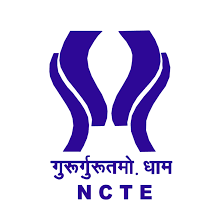Odisha CM seeks support of UN body on skilling women
He shared his thoughts on digital skills but cautioned that it must be accompanied by high-quality teacher training, content, universal access to devices and the Right to the Internet.
The programme is being offered in pilot mode initially in reputed central/state government universities and institutions.

The National Council for Teacher Education (NCTE) has launched the Integrated Teacher Education Programme. [ Photo: Twitter]
The National Council for Teacher Education (NCTE) has launched the Integrated Teacher Education Programme (ITEP) in 57 Teacher Education Institutions (TEIs) throughout the country from the academic session 2023-24.
This is a flagship programme of NCTE under the NEP-2020. The ITEP is a 4-year dual-major holistic undergraduate degree offering BA, BEd/ BSc, B Ed and BCom BEd. This course will prepare teachers for the four stages of the new school structure, that is, Foundational, Preparatory, Middle and Secondary (5+3+3+4).
Advertisement
The programme is being offered in pilot mode initially in reputed central/state government universities and institutions. It will be available for all students who choose teaching as a profession after secondary, by choice.
Advertisement
This integrated course will benefit students since they will save one year by finishing the course in four years rather than the customary five years required by the present B.Ed. plan. Admission for the same will be carried out by the National Testing Agency (NTA) through the National Common Entrance Test (NCET).
The ITEP will not only impart cutting-edge pedagogy but will also establish a foundation in early childhood care and education (ECCE), foundational literacy and numeracy (FLN), inclusive education and an understanding of India and its values/ethos/art/traditions, among others.
The course will contribute substantially to the revitalization of the whole teacher education sector. The prospective teachers passing out of this course through a multi-disciplinary environment, grounded in Indian values and traditions will be instilled with the needs of 21st-century global standards and, hence, will be the harbingers in shaping the future of New India.
Advertisement